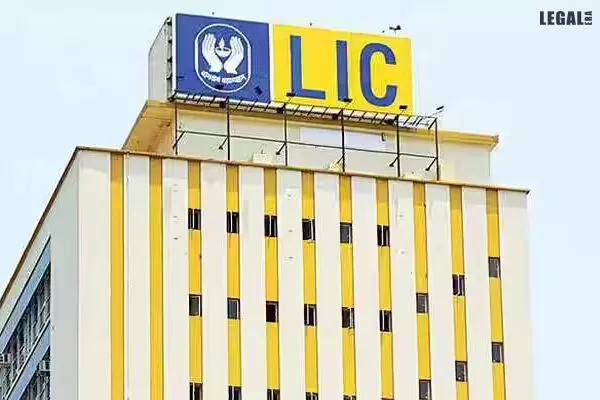- Home
- News
- Articles+
- Aerospace
- Artificial Intelligence
- Agriculture
- Alternate Dispute Resolution
- Arbitration & Mediation
- Banking and Finance
- Bankruptcy
- Book Review
- Bribery & Corruption
- Commercial Litigation
- Competition Law
- Conference Reports
- Consumer Products
- Contract
- Corporate Governance
- Corporate Law
- Covid-19
- Cryptocurrency
- Cybersecurity
- Data Protection
- Defence
- Digital Economy
- E-commerce
- Employment Law
- Energy and Natural Resources
- Entertainment and Sports Law
- Environmental Law
- Environmental, Social, and Governance
- Foreign Direct Investment
- Food and Beverage
- Gaming
- Health Care
- IBC Diaries
- In Focus
- Inclusion & Diversity
- Insurance Law
- Intellectual Property
- International Law
- IP & Tech Era
- Know the Law
- Labour Laws
- Law & Policy and Regulation
- Litigation
- Litigation Funding
- Manufacturing
- Mergers & Acquisitions
- NFTs
- Privacy
- Private Equity
- Project Finance
- Real Estate
- Risk and Compliance
- Student Corner
- Take On Board
- Tax
- Technology Media and Telecom
- Tributes
- Viewpoint
- Zoom In
- Law Firms
- In-House
- Rankings
- E-Magazine
- Legal Era TV
- Events
- Middle East
- Africa
- News
- Articles
- Aerospace
- Artificial Intelligence
- Agriculture
- Alternate Dispute Resolution
- Arbitration & Mediation
- Banking and Finance
- Bankruptcy
- Book Review
- Bribery & Corruption
- Commercial Litigation
- Competition Law
- Conference Reports
- Consumer Products
- Contract
- Corporate Governance
- Corporate Law
- Covid-19
- Cryptocurrency
- Cybersecurity
- Data Protection
- Defence
- Digital Economy
- E-commerce
- Employment Law
- Energy and Natural Resources
- Entertainment and Sports Law
- Environmental Law
- Environmental, Social, and Governance
- Foreign Direct Investment
- Food and Beverage
- Gaming
- Health Care
- IBC Diaries
- In Focus
- Inclusion & Diversity
- Insurance Law
- Intellectual Property
- International Law
- IP & Tech Era
- Know the Law
- Labour Laws
- Law & Policy and Regulation
- Litigation
- Litigation Funding
- Manufacturing
- Mergers & Acquisitions
- NFTs
- Privacy
- Private Equity
- Project Finance
- Real Estate
- Risk and Compliance
- Student Corner
- Take On Board
- Tax
- Technology Media and Telecom
- Tributes
- Viewpoint
- Zoom In
- Law Firms
- In-House
- Rankings
- E-Magazine
- Legal Era TV
- Events
- Middle East
- Africa
LIC Claim Dispute: District Commission Upholds Insured’s Duty of Accurate Disclosure

LIC Claim Dispute: District Commission Upholds Insured’s Duty of Accurate Disclosure
Recently, the District Consumer Disputes Redressal Commission-I in North Delhi, presided over by Divya Jyoti Jaipuriar (President) and Ashwani Kumar Mehta (Member), ruled in favour of Life Insurance Corporation (LIC).
The complaint against LIC was dismissed based on the understanding that the insured bears the responsibility of accurately providing details in the proposal form. In this case, the insured failed to disclose pre-existing health conditions in the proposal form, leading to LIC’s rightful decision to repudiate the claim.
Sharda Khatri had taken out a life insurance policy with LIC for a sum assured of ₹2 lakhs, with an annual premium of ₹9,608. The policy became effective on December 28, 2013, and the risk coverage started on December 31, 2013. Sharda’s son was named as the policy’s nominee.
At the time of policy initiation, Sharda did not have any pre-existing health conditions. She, however, fell seriously ill and required hospitalisation. Tragically, she passed away. Following her demise, the son (complainant) approached LIC to claim the insurance amount. LIC allegedly rejected the claim, citing the existence of a pre-existing disease that Sharda had not disclosed during the policy application.
Feeling aggrieved by the denial of the claim, the complainant filed a consumer complaint against LIC with the District Consumer Disputes Redressal Commission-I in North Delhi.
In response to the complainant’s claim, LIC raised several contentions. First, LIC argued that the complainant had not approached the District Consumer Disputes Redressal Commission-I with clean hands and had suppressed material facts. The insurance claim had been repudiated on March 24, 2017, with an option given to the complainant to appeal the decision to the Zonal office. However, the complainant allegedly failed to pursue the appellate authority before turning to the District Commission.
Furthermore, LIC contended that the deceased policyholder had pre-existing health conditions, including DM-T2 (Diabetes type-2), CKD-ESRD (chronic kidney disease), severe anaemia, metabolic acidosis, and dyspnoea. These conditions were documented in the hospital treatment certificate from a previous admission. LIC asserted that the deceased had not disclosed these health issues in the proposal or personal statement, thereby providing false information about her health status.
The District Consumer Disputes Redressal Commission-I carefully examined the allegations and averments made by the complainant. The commission compared these claims with the medical records of Sharda Khatri.
The commission underlined a well-established principle: the insured bears the responsibility of accurately providing details in the proposal form. This accurate disclosure is crucial for insurance companies to make informed decisions regarding policy acceptance or the need for further investigations before granting coverage.
Upon reviewing the reply and documents submitted by LIC, the commission found compelling evidence that the deceased Sharda Khatri had indeed provided incorrect information in the proposal form to obtain the insurance policy in question. Specifically, Sharda Khatri failed to disclose her pre-existing health conditions, which included DM-T2 (Diabetes type-2), CKD-ESRD (chronic kidney disease), severe anaemia, metabolic acidosis, and dyspnea.
As a result, the District Commission upheld LIC’s decision to rightfully repudiate the claim made by the complainant. Consequently, the complaint was dismissed.



